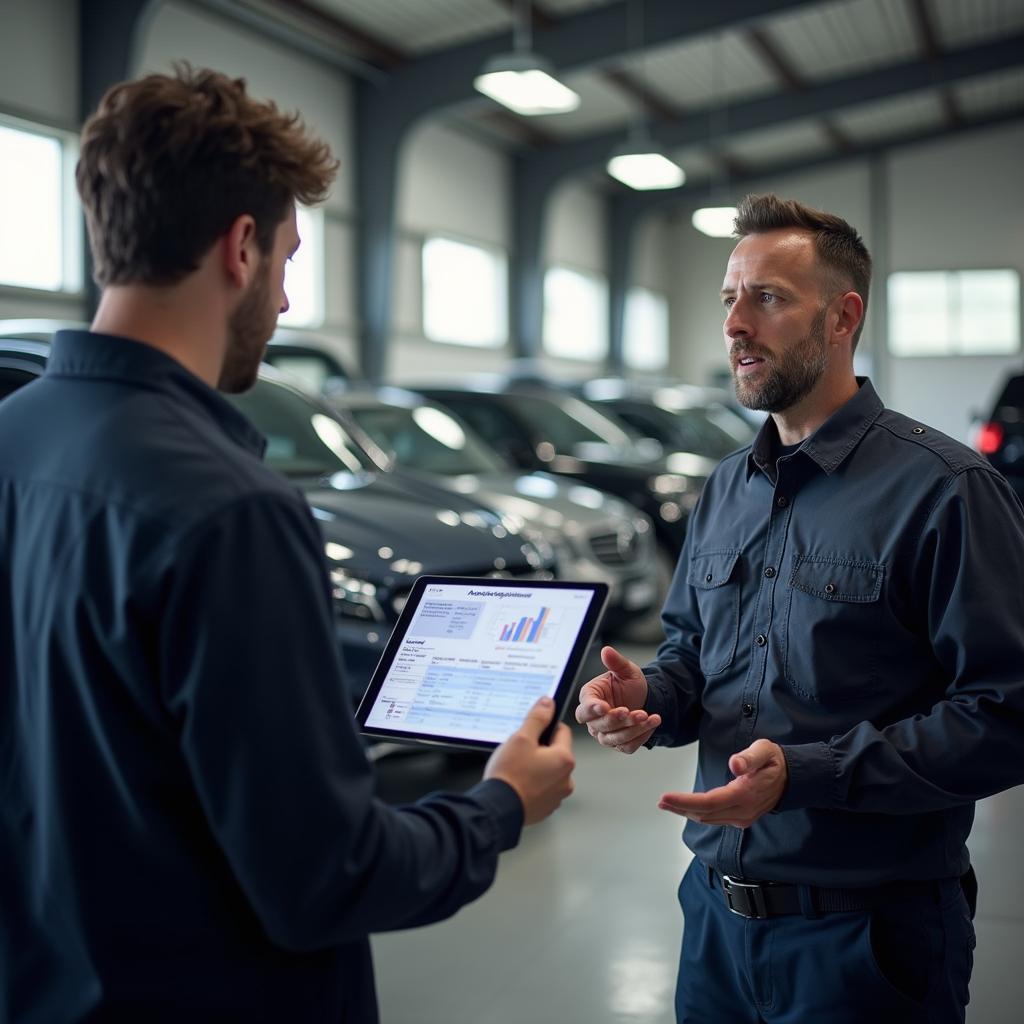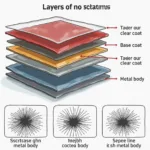Choosing the right car body repair shop can be a daunting task, especially after an accident or when dealing with unsightly dents and scratches. With so many options available, it’s important to know what to look for to ensure you’re entrusting your vehicle to skilled and reputable professionals. This guide will provide you with all the information you need to make an informed decision when selecting a car body repair shop.
What Does a Car Body Repair Shop Do?
Car body repair shops specialize in restoring vehicles back to their pre-accident condition, or even better. They handle a wide range of services, including:
- Collision Repair: This includes major repairs after an accident, such as frame straightening, panel replacement, and paintwork.
- Dent Repair: Techniques like paintless dent repair (PDR) can remove minor dents and dings without the need for repainting.
- Scratch Repair: From minor scratches to deep gouges, car body repair shops can restore your car’s paintwork to its former glory.
- Bumper Repair: Whether it’s a minor crack or a complete replacement, these shops can handle all your bumper repair needs.
- Window Repair and Replacement: From windshield repairs to side window replacements, car body repair shops can handle all types of auto glass work.
- Paintwork: From minor touch-ups to complete resprays, car body repair shops can give your car a fresh new look.
Essential Factors When Choosing a Car Body Repair Shop
Finding the right car body repair shop requires careful consideration of several factors:
- Reputation: Look for shops with a proven track record of quality workmanship and customer satisfaction. Online reviews, testimonials, and word-of-mouth referrals can be invaluable resources.
- Experience: An experienced shop will have encountered and successfully resolved a wide range of car body issues, making them better equipped to handle your specific needs.
- Certifications and Training: Ensure the shop employs certified technicians who stay updated on the latest repair techniques and technologies.
- Equipment and Technology: Modern car body repair relies heavily on advanced equipment and technology. Opt for a shop that invests in state-of-the-art tools and diagnostic systems.
- Insurance Claims Process: If you’re filing an insurance claim, choose a shop that’s familiar with the process and can assist you in navigating the paperwork.
- Warranties: A reputable shop will stand behind their work with comprehensive warranties on both parts and labor.
- Communication: Clear and transparent communication is crucial. Choose a shop that keeps you informed throughout the repair process and provides detailed explanations.
- Location and Convenience: Consider factors like proximity to your home or work, availability of loaner vehicles, and convenient operating hours.
- Get Multiple Quotes: Don’t settle for the first quote you receive. Get estimates from several reputable shops to compare prices and services offered.
Questions to Ask Potential Car Body Repair Shops
Once you’ve narrowed down your choices, asking the right questions can help you make the final decision:
- “Can I see examples of your previous work?” This allows you to assess the quality of their craftsmanship firsthand.
- “What types of warranties do you offer on repairs?” A solid warranty demonstrates confidence in their work and provides peace of mind.
- “Do you use original equipment manufacturer (OEM) parts?” OEM parts ensure compatibility and can be essential for maintaining your vehicle’s value.
- “What is the estimated turnaround time for my repairs?” This helps you plan accordingly and minimize disruption to your routine.
- “Can you provide me with a detailed breakdown of the costs involved?” Transparency in pricing is crucial to avoid any surprises.
Common Car Body Repair Issues and Solutions
Understanding common car body issues can help you identify potential problems and discuss them with your chosen repair shop. Here are a few examples:
- Dents: Paintless dent repair (PDR) can often address minor dents without the need for repainting.
- Scratches: Depending on the severity, scratches can be buffed out, touched up, or require repainting of the affected panel.
- Bumper Damage: Minor cracks can sometimes be repaired, while more extensive damage often necessitates bumper replacement.
- Frame Damage: This is a serious issue that requires specialized equipment and expertise to ensure the vehicle’s structural integrity is restored.
“When it comes to frame damage,” explains John Miller, Senior Automotive Engineer at CarRepairOnline, “it’s critical to choose a shop with a certified frame straightening system. This ensures the repairs are carried out with precision and meet the highest safety standards.”
Tips for Maintaining Your Car’s Bodywork
- Regular Washing: Washing your car regularly helps remove dirt, grime, and corrosive substances that can damage the paintwork.
- Waxing: Applying a protective layer of wax twice a year can help shield your car’s paint from UV rays, scratches, and minor abrasions.
- Promptly Address Damage: Addressing minor damage promptly can prevent it from worsening and leading to more costly repairs down the line.
Conclusion
Selecting the right car body repair shop is essential for ensuring your vehicle is restored to its optimal condition. By following the guidelines and tips outlined in this guide, you can confidently choose a reputable and skilled shop that meets your specific needs. Remember to prioritize factors like reputation, experience, certifications, and communication to make an informed decision.



